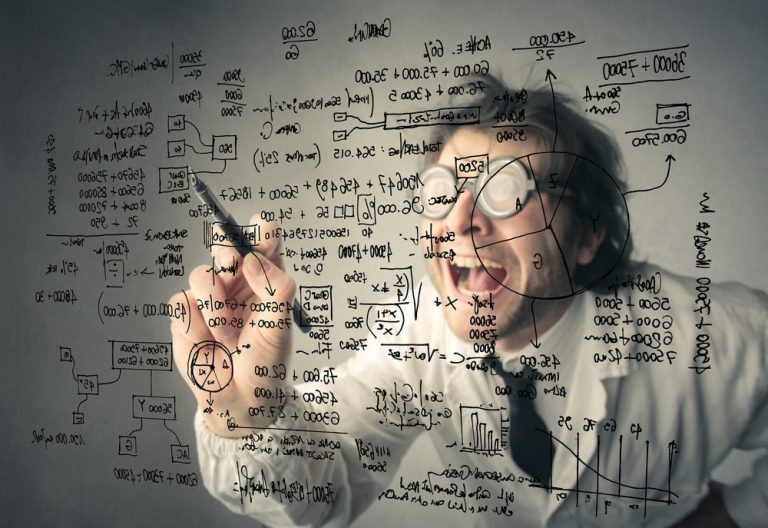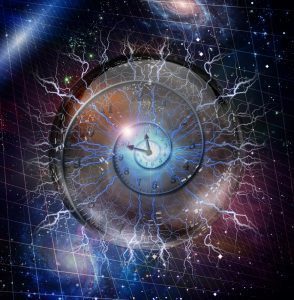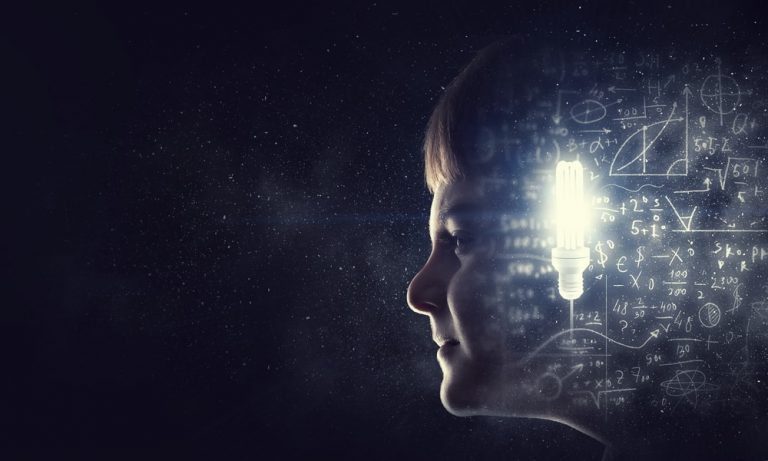0
You have 0 items in your cart

We’ve been made to believe that time exists. That it’s real. Every morning we wake up, every month we pay bills, every year we celebrate a birthday.
Most of us live without thinking about time. Time has become such a natural part of our lives that its scrutiny is as strange as questioning why we breathe. In fact, many people feel silly arguing about whether time is real or not.
If you go to the street today, and randomly ask people, ”Does time really exist?’’ many will just look at you and laugh. Some of the replies you will get might be, ”the clock ticks, the sun sets, we age and die, obviously time exists.’’
The truth is; time is one of the easiest things to talk and think about. For instance, find yourself late for work, and you’ll be thinking,’’I’m so late my boss is going to kill me.’’ In fact, our own personal experience of aging confirms to us the reality of time.
But is time merely an idea or an apparent function of reality? Does it only exist in our minds or is it something we should think about carefully
 We all instinctively know that time isn’t a thing – it’s not the kind of object you can feel, see or smell. There’s something strange about it. You can’t pick it up and put it on a shelf then re-fetch it at a later time. There’s something oddly different about it.
We all instinctively know that time isn’t a thing – it’s not the kind of object you can feel, see or smell. There’s something strange about it. You can’t pick it up and put it on a shelf then re-fetch it at a later time. There’s something oddly different about it.
To me, time is more like a tool – one that allows us to plan meetings, arrange our affairs, go on holiday and celebrate birthdays, weddings, anniversaries, etc. The clock and the calendar are merely tools to gauge our position relative to other things. Otherwise, time doesn’t exist.
One would say, ”well, I remember yesterday, and that was the past, and here I am now, that’s time, and it has passed.” Some would say, ”well if there’s no such thing as time, why do we die? If time doesn’t exist, everyone would live forever.” Let me explain what this is.
 There is only one now. Everything we experience happens now, not in the so-called past, and not in the future, only now. If you can get that then you’ll understand. Your body is in all three times: past, present and future.
There is only one now. Everything we experience happens now, not in the so-called past, and not in the future, only now. If you can get that then you’ll understand. Your body is in all three times: past, present and future.
Look at the clock. The person you are now, in one minute, will be in the past. This simply means, the you that you are right now, will be in the past. The past you, will become the present you and then almost instantly the future you. The past is a memory of our experiences and our experiences don’t happen in a linear pattern.
What we actually go through are cycles of energy – not passages of time. It’s because of our consciousness that we keep seeing things as we do. Our consciousness is a point of attention where we watch the movement of energy through a single point of perception. It is by this understanding that things appear to be.
In fundamental reality, everything is existent, without any movement. Movement only comes when we decide to fix our consciousness in the past, present and future.
Time is acreated thing. To say ‘I don’t have time’, is like saying, ‘I don’t want to.
 In physics, the past, present and future, are all one and the same thing. This linearity is referred to as the arrow of time, and some scientists believe it only progresses this way because humans exist to observe its passing. The theory of time as an arrow is an old one. And to be clear, this theory doesn’t talk about whether time exists, but what direction it moves.
In physics, the past, present and future, are all one and the same thing. This linearity is referred to as the arrow of time, and some scientists believe it only progresses this way because humans exist to observe its passing. The theory of time as an arrow is an old one. And to be clear, this theory doesn’t talk about whether time exists, but what direction it moves.
Many scientists believe it emerges when tiny particles interact and start displaying a type of behavior that can only be explained using classical physics. But two researchers argue that gravity isn’t strong enough to force every object in the universe to follow the past-present-future direction. Instead, the arrow of time emerges from an observer’s point of view.
Many scientists believe it emerges when tiny particles interact and start displaying a type of behavior that can only be explained using classical physics. But two researchers argue that gravity isn’t strong enough to force every object in the universe to follow the past-present-future direction. Instead, the arrow of time emerges from an observer’s point of view.
This can be explained using both quantum and classical mechanics. In quantum mechanics, particles appear to have superposition. That is, one particle can exist in two places, and no one can say which for sure until it’s observed. Where that particle might be, is explained by probability. However, experimentally, this is wrong.
 The rules change when the particle starts interacting with other objects – like air molecules. Classical mechanics takes over, and gravity begins to make sense. The position of the particle is governed by probability. But once they interact with other objects, the odds that particles have superposition decreases. That’s why you never see an object in two places at one time.
The rules change when the particle starts interacting with other objects – like air molecules. Classical mechanics takes over, and gravity begins to make sense. The position of the particle is governed by probability. But once they interact with other objects, the odds that particles have superposition decreases. That’s why you never see an object in two places at one time.
The theory isn’t perfect. But it’s important, and most scientists agree that it’s a valuable tool for explaining the confusion underlying the existence of time. Here’s where it gets more confusing. Although the theory doesn’t include a variable for time – time is something that can’t be measured in itself, it’s measured as a correlation between the location of objects…over time…anyway…it’s just confusing.
And when science doesn’t check out, that leaves us – the observers. According to us, time moves the way it does because we are biologically, neurologically and metaphysically hardwired to experience it that way. It’s more like a macro-scale form of Schrodinger’s cat. A corner of the universe might be moving from the past to the future. But the moment we point to that direction, it starts moving from the future to the past.
But Wait…Did you know that can we observe a star dying in a telescope that occurred in the past? When we look at the stars, we see them as they were several years ago. If a star, for example, is 1000 light years away, we’re seeing it as it were 1000 years ago. If the star dies, we won’t know about it for the year-equivalent of its distance in light years. Then one day, we will see a flash in the sky, and we will instantly know that if it’s 1000 light years away, it died 1000 years ago.
Time is not measured by clocks, but by moments.
 There is only the present. Everything exists in an ever present moment. Things only appear to be isolated by virtue of our relative consciousness. It’s accurate to say that the point of creation is our point of focus, otherwise referred to as singularity in scientific terms.
There is only the present. Everything exists in an ever present moment. Things only appear to be isolated by virtue of our relative consciousness. It’s accurate to say that the point of creation is our point of focus, otherwise referred to as singularity in scientific terms.
Singularity is the point at which everything we experience arises from and ultimately falls back into. Scientists believe it is where consciousness resides. When the future comes, it does so because it is directly related to how we focus our minds.
Likewise, the past only exists as a memory. We cannot visit what happened 40 seconds ago, neither can we visit what happened 1000 years ago. All we can do is hold those things as memories in the present.
The future only exists as an expectation. For instance, when we fire an arrow, we can only expect the arrow to hit the target, but as soon as we fire it, we cannot revisit the moment when the arrow hits the target, and neither can we revisit the moment we shot the arrow.
The future doesn’t exist until we create it. We are the catalysts, the factors that decide whether our minds realize something or not. The reality is, we can never isolate ourselves from the universe, because we form part of the equation, always.

Life unfolds in the present. But far too often, we allow the present slip away, letting time rush past unseized, and squandering the precious moments of our life worrying about the future and ruminating about what’s in the past.
When we’re at work, we dream about being on vacation, when we finally go on vacation; we begin to worry about the work piling up on our desks. We dwell so much on the past or fret about what may or may not happen in the future.
Most of us don’t actually appreciate the now, because our minds jump from thought to thought just the way monkeys swing from tree to tree. In order to have more control of our minds and lives, we need to find a balance. We need to step out of the current, then pause, and focus on just being.
 We need to be present. Living in the moment – aka mindfulness – is a state of active, intentional attention to the present. When you are mindful, you realize that your thoughts do not define you. You just become an observer of your thoughts from time to time without interrupting them. Mindfulness involves identifying with yourself at the moment and accepting your thoughts the way they are.
We need to be present. Living in the moment – aka mindfulness – is a state of active, intentional attention to the present. When you are mindful, you realize that your thoughts do not define you. You just become an observer of your thoughts from time to time without interrupting them. Mindfulness involves identifying with yourself at the moment and accepting your thoughts the way they are.
Cultivating a habit of mindfulness of the present comes with an array of benefits. It reduces stress, lowers blood pressure, boosts the immune system, reduces chronic pain and helps people cope with cancer. By alleviating constant stress and spending a few minutes a day practicing mindfulness, we also lower the risk of heart disease.
Mindful people are more exuberant, more secure and more empathetic. They have high self-esteem and are more accommodating of their weaknesses. Practicing mindfulness in the present (now) reduces the kinds of reactivity that underlie stress, depression and attention problems. Mindful people can hear negative feedback and not feel threatened. They fight less with their co-workers and are less defensive. As a result of this, they have more successful lives both at home and at work.
Everyone agrees that it’s important to live in the moment, but the bigger question is how?
In her biography, Eat, Pray, Love, Elizabeth Gilbert wrote about a friend who exclaimed whenever she saw a beautiful place, ”It is exquisite. I want to come back here again.’’ ”It takes all convincing’’ says Elizabeth, ”to try and tell her that she is here already.’’
Often, we are so trapped in our thoughts of the past and the future that we forget to enjoy what is happening around us. We eat good food and think, ”This isn’t as good as what I ate last week.’’ We sip coffee in a restaurant and think, ”I hope I get to come back here.’
 What we should be doing instead is to relish and enjoy whatever we are doing at present- what psychologists often refer to as savoring. This could be while taking a shower, eating a pastry or talking to a client. Just relax and enjoy the moment. Meditation is a great way to practice being present and bringing awareness to your mind, body and emotions. Creating a habit of meditation is an easy way to clear your mind, raise awareness and improve your mood daily.
What we should be doing instead is to relish and enjoy whatever we are doing at present- what psychologists often refer to as savoring. This could be while taking a shower, eating a pastry or talking to a client. Just relax and enjoy the moment. Meditation is a great way to practice being present and bringing awareness to your mind, body and emotions. Creating a habit of meditation is an easy way to clear your mind, raise awareness and improve your mood daily.
In an experiment, a number of subjects were told to take a few minutes each day to actively enjoy (savour) something- could be walking to the bus, drinking a cup of coffee, eating a meal. When they took the time to savour, they began to experience more happiness, joy and other positive emotions.
But why does living in the moment make people more contented and happy- not just at the time they’re basking in the sun- but lastingly? Well, the answer is simple. Because most negative thoughts are about the past and the future. Negative thoughts in their very nature- means thinking about the past and the future- but if you focus on the present- worry almost always melts away.
 Without doubt, the best way to live in the moment is to lose track of time. This occurs when you are so engrossed in a task, that you lose track of everything else. But this concept has a paradox: how can you live in the moment if you are not even aware of that moment?
Without doubt, the best way to live in the moment is to lose track of time. This occurs when you are so engrossed in a task, that you lose track of everything else. But this concept has a paradox: how can you live in the moment if you are not even aware of that moment?
The depth of being engaged absorbs you forcefully, hijacking your attention such that no distractions can penetrate. You focus so much on what you are doing until you don’t notice the passage of time. Hours can just pass without you realizing.
As with sleep or romance, losing track of time isn’t an easy thing. You can’t just will yourself into it- you have to set the right stage, creating the ideal conditions for it to happen naturally.
The first condition is to set goals for yourself– goals that are challenging but attainable- something you have to pull all your resources together and stretch yourself to the limits. This task should, however, match your ability level- not so hard that you feel stressed, and not too easy that you get bored. In short, it should just be enough to give you a challenge.
 To set the ideal stage, your goals need to be clearly set out so that you are always aware of your next step. It could be surpassing the targets set for you at work, working hard towards a promotion or setting a record for yourself.
To set the ideal stage, your goals need to be clearly set out so that you are always aware of your next step. It could be surpassing the targets set for you at work, working hard towards a promotion or setting a record for yourself.
You also need to set the task so that you receive immediate feedback; where your successes and failures are apparent. This will help you know where you went wrong so that you can adjust accordingly. A leader knows immediately when they have made a mistake; a marketer knows instantly when they have failed to reach their sales targets.
As you focus your attention on your goals, self- consciousness fades away. You feel as if your awareness merges with what you are doing. You feel a sense of personal satisfaction, and feel that your efforts are so rewarding that even though the task may be difficult, it feels effortless.
There are two different types of time that govern the objective and subjective sides of people. When we say objective, we are referring to those people who use their heads and hands to solve problems. Subjective people, on the other hand, refer to those people who use their hearts and spirits to approach issues.
 Objective people are governed by the first type of time also known as the triangle time or clock time. Subjective people are governed by the second type of time, also known as circle time or Kairos time.
Objective people are governed by the first type of time also known as the triangle time or clock time. Subjective people are governed by the second type of time, also known as circle time or Kairos time.
However, there is a certain group of people that use both, triangle time to define and set goals and objectives; and circle time to connect team members to their attitudes, dreams, and aspirations.
Circle time is a great time to relax and get new energy as you focus on your next tasks., while triangle time is necessary to measure and follow up outcomes and results.
Takeaway
Time has been sold to us like a precious commodity. We’ve been raised to believe the idea that we live along some invisible line from birth to death and that time holds some invaluable currency that we must use wisely.
To me, this is a dumb idea. It’s merely a perception, one that has been given far too much relevance in life. The illusion of time is similar to the old idea that the earth is flat, and we seem to be absolutely ruled by this idea. To expect to solve significant issues with a traditional mind is short-sighted and only produces the same problems over and over again.
Time should be used like a tool, one that we use to get things done, and put back on the store once we are done using it. Time should be used to arrange our lives, innovate business and celebrate our successes.
At a micro level, the level where most of us are, we need to stop giving time too much importance. We need to stop existing in the past or the future. Stop racing around trying to get ahead of time or chasing your tail.
We spend the best years of our lives as slaves to the clock and employers and end up sacrificing ourselves in the process, then justify our doings by telling ourselves we have no choice. This behavior is self-destructive and serves no good. Someday, we will need to stop time.
Spending today Complaining about Yesterday, won’t make Tomorrow any better
This Privacy Policy describes how SmartMinds Enterprise OÜ (“SmartMinds”, “we”, “us” or “our”) handles information about yourself that you may provide us with through your use of the Site or Service (“Personal Information”) and should be read along with our Terms of Use posted here, and all other operating rules and additional terms and conditions published on our Site.
SmartMinds is committed to keeping your information secure and managing it in accordance with our legal responsibilities under privacy and data protection laws where we operate. SmartMinds uses your Personal Information only in accordance with this Privacy Policy and Applicable Law. SmartMinds does not sell your Personal Information to third parties. Any capitalized terms not defined in this Privacy Policy are defined in the Terms of Use.
We employ the use of cookies. By using SmartMinds‘s website you consent to the use of cookies in accordance with SmartMinds’s privacy policy.
Most of the modern day interactive web sites use cookies to enable us to retrieve user details for each visit. Cookies are used in some areas of our site to enable the functionality of this area and ease of use for those people visiting. Some of our affiliate / advertising partners may also use cookies.
Unless otherwise stated, SmartMinds and/or it’s licensors own the intellectual property rights for all material on SmartMinds All intellectual property rights are reserved. You may view and/or print pages from https://smartminds.stagings.one for your own personal use subject to restrictions set in these terms and conditions.
You must not:
We will approve link requests from these organisations if we determine that: (a) the link would not reflect unfavourably on us or our accredited businesses (for example, trade associations or other organisations representing inherently suspect types of business, such as work-at-home opportunities, shall not be allowed to link); (b)the organisation does not have an unsatisfactory record with us; (c) the benefit to us from the visibility associated with the hyperlink outweighs the absence of SmartMinds; and (d) where the link is in the context of general resource information or is otherwise consistent with editorial content in a newsletter or similar product furthering the mission of the organisation.
These organisations may link to our home page, to publications or to other Web site information so long as the link: (a) is not in any way misleading; (b) does not falsely imply sponsorship, endorsement or approval of the linking party and its products or services; and (c) fits within the context of the linking party’s site.
If you are among the organizations listed in paragraph 2 above and are interested in linking to our website, you must notify us by sending an e-mail to Please include your name, your organisation name, contact information (such as a phone number and/or e-mail address) as well as the URL of your site, a list of any URLs from which you intend to link to our Web site, and a list of the URL(s) on our site to which you would like to link. Allow 2-3 weeks for a response.
Approved organizations may hyperlink to our Web site as follows:
No use of (name)’s logo or other artwork will be allowed for linking absent a trademark license agreement.
Without prior approval and express written permission, you may not create frames around our Web pages or use other techniques that alter in any way the visual presentation or appearance of our Web site.
We shall have no responsibility or liability for any content appearing on your Web site. You agree to indemnify and defend us against all claims arising out of or based upon your Website. No link(s) may appear on any page on your Web site or within any context containing content or materials that may be interpreted as libelous, obscene or criminal, or which infringes, otherwise violates, or advocates the infringement or other violation of, any third party rights.
We reserve the right at any time and in its sole discretion to request that you remove all links or any particular link to our Web site. You agree to immediately remove all links to our Web site upon such request. We also reserve the right to amend these terms and conditions and its linking policy at any time. By continuing to link to our Web site, you agree to be bound to and abide by these linking terms and conditions.
If you find any link on our Web site or any linked web site objectionable for any reason, you may contact us about this. We will consider requests to remove links but will have no obligation to do so or to respond directly to you.
Whilst we endeavour to ensure that the information on this website is correct, we do not warrant its completeness or accuracy; nor do we commit to ensuring that the website remains available or that the material on the website is kept up to date.
We have a 30-day Money Back Guarantee when purchasing Realized Mind, all we ask if that within the 30 days to complete the learning experience and if you truly feel you did not receive any value from the experience we are happy to refund your payment and close your account.
To the maximum extent permitted by applicable law, we exclude all representations, warranties and conditions relating to our website and the use of this website (including, without limitation, any warranties implied by law in respect of satisfactory quality, fitness for purpose and/or the use of reasonable care and skill). Nothing in this disclaimer will:
The limitations and exclusions of liability set out in this Section and elsewhere in this disclaimer: (a) are subject to the preceding paragraph; and (b) govern all liabilities arising under the disclaimer or in relation to the subject matter of this disclaimer, including liabilities arising in contract, in tort (including negligence) and for breach of statutory duty.
To the extent that the website and the information and services on the website are provided free of charge, we will not be liable for any loss or damage of any nature.
